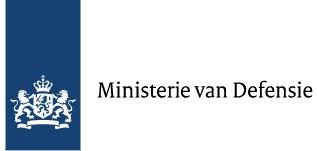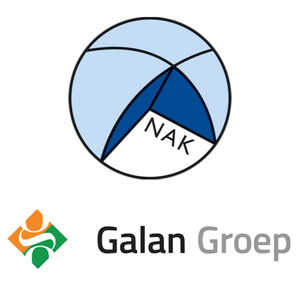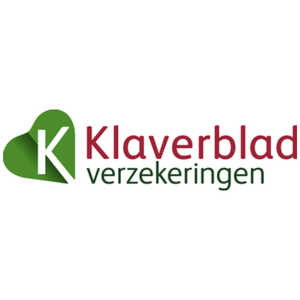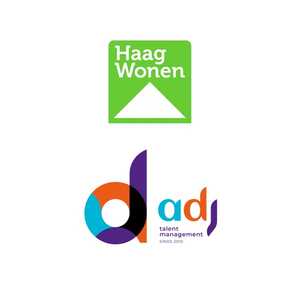Zoekcriteria
Vind jouw baan in onze 155 vacatures!
Amsterdam
Nieuwe vacature
Het Mondriaan Fonds en Boer & Croon Executive Search zijn partners in de zoektocht naar een...

Den Helder
UD A Opt Oper Processen - Positiebepaling, navigatie en tijdsbepaling (PNT)
UD A Opt Oper Processen - Positiebepaling, navigatie en tijdsbepaling (PNT) Ministerie van Defensie Dit ga je...

Den Haag
Voorzitter en 4 leden Commissie gelijke kansen bij gronduitgifte natuur
Het Ministerie van Landbouw, Visserij, Voedselzekerheid en Natuur zoekt een
...

Drachten
Collegiaal Bestuurder
Leeuwendaal zoekt voor Kwadrant een collegiaal bestuurder. De organisatie Kwadrant is een toonaangevende...

Groningen
Vacature: Bouwkundige Behoud en Ontwikkeling | 36 uur
Groninger Kerken zoekt een ervaren bouwkundige met passie voor cultureel erfgoed ter versterking van het team...

Zwolle
Drie Leden Raad van Toezicht
Voor de komende periode zoekt Museum de Fundatie drie nieuwe leden die gezamenlijk bijdragen aan een evenwichtige...

Haarlem
Sectormanager Subsidies en Inkoop
Geef richting aan een groeiende sector en maak het verschil in grote provinciale opgaven met jouw visie en...

Oss
Manager Innovatie & Kwaliteit
Als Manager Innovatie & Kwaliteit geef je richting aan (pedagogische) kwaliteitsontwikkeling en innovatie, breng...

Hoorn
Lid Raad van Bestuur (portefeuille bedrijfsvoering incl. financiën en ict) - Dijklander Ziekenhuis
Het Dijklander ziekenhuis biedt zorg aan alle inwoners van de regio’s Waterland en West-Friesland vanuit de...

Leek
Lid Raad van Commissarissen
Wold & Waard zoekt een maatschappelijk gedreven toezichthouder met strategische visie op vastgoed, die...

Haarlem
Gemeentesecretaris/Algemeen directeur gemeente Haarlem
Wie ben jij?
Iemand met een stevige / krachtige persoonlijkheid.
Iemand die ruimte geeft en...

Emmen
Manager Bedrijfsvoering en Zorgtransformatie portefeuille 4 (o.a. de paramedische diensten, behandeldienst en revalidatie)
Leeuwendaal zoekt voor Treant een Manager Bedrijfsvoering en Zorgtransformatie portefeuille 4 (o.a. de...

Emmen
Manager Bedrijfsvoering en Zorgtransformatie portefeuille 3 (o.a. SEH, OK, KCL, Radiologie)
Leeuwendaal zoekt voor Treant een Manager Bedrijfsvoering en Zorgtransformatie portefeuille 3 (o.a. SEH, OK, KCL,...

Emmen
Manager PO&O
Leeuwendaal zoekt voor Treant een Manager PO&O De organisatie Treant biedt ziekenhuis- en ouderenzorg aan...

Amsterdam
Azure Cloud Architect
Azure Cloud Architect Wil jij als Solution Architect richting geven aan onze Cloud First-strategie? Bouw mee aan...

Helvoirt
Finance Medewerker
In deze rol werk je nauw samen met de Manager Finance & Control en ben je betrokken bij zowel de dagelijkse...

Emmeloord
Manager Strategie en Ontwikkeling
Een strategische en verbindende leider die moeiteloos schakelt tussen visie en uitvoering? Bekijk de vacature en...

Den Haag
Senior HR business partner Organisatieontwikkeling
Interprovinciaal Overleg zoekt een strategische Senior HR Business Partner die organisatieverandering...

Zoetermeer
Risicospecialist Zakelijk MKB
Klaverblad Verzekeringen zoekt een ervaren risicospecialist die complexe MKB-risico’s scherp beoordeelt,...

Amsterdam
Juridisch adviseur Erfpacht
Wil jij met jouw juridische expertise bijdragen aan een eerlijke, leefbare en toekomstbestendige stad? Dit is je kans!
Rotterdam
2 Regiomanagers (Rotterdam en Noordoost-Nederland)
Stichting Anne-Bo heeft een pool van 400 studenten plus 400 coaches. Iedere student wordt gematcht met een...

Rotterdam
Regiomanager Zuid (Brabant, Zeeland, Limburg)
Regiomanager Zuid (Brabant, Zeeland, Limburg) 36 uur | Hybride | € 5.538 – € 7.911 Bouw mee aan...

Utrecht
Jurist faunazaken
Een juridisch expert die natuurwetgeving vertaalt naar praktisch toepasbaar beleid en advies, zodat mens en dier in...

Velp
Onderzoeker bij het Lectoraat CoPSEL
Wij zijn op zoek naar een Onderzoeker bij het Lectoraat CoPSEL Functieomschrijving Binnen het lectoraat...

Den Haag
Directeur Strategie & Beleid
Een strategisch en verbindend leider die complexe maatschappelijke opgaven vertaalt naar heldere koers, uitvoerbaar...

Amsterdam
Directeur-bestuurder
Leeuwendaal zoekt voor !WOON een directeur-bestuurder. De organisatie De organisatie !WOON draagt actief bij aan...
